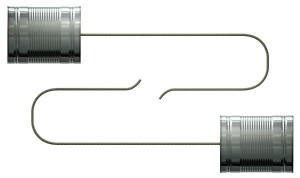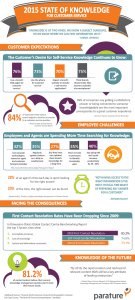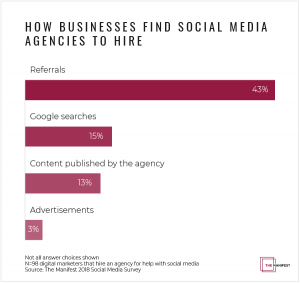 Conversion rate optimization (CRO) is the science and art of maximizing the number of website visitors that perform a desired action, such as contacting your company, requesting a quote, downloading a whitepaper or subscribing to a newsletter.
Conversion rate optimization (CRO) is the science and art of maximizing the number of website visitors that perform a desired action, such as contacting your company, requesting a quote, downloading a whitepaper or subscribing to a newsletter.
Historically, conversion rate optimization has accounted for a small percentage of small business marketing budgets. In 2016, we think that will grow, partly due to the fact that maximizing your company’s existing website traffic is less costly than getting new visitors.
Given the many ways of optimizing visitor conversion rates, it can be difficult to know what is effective. For the past seven years, Econsultancy has produced a “Conversion Rate Optimization Report,” polling companies on their experiences with various strategies. Let’s use the findings of the 2015 report to see what worked last year so you can enhance your 2016 CRO efforts.
2015 Trends
Econsultancy polled various companies, reporting CRO trends for that year. Although many factors are provided in the report, the main ones are
- Popularity: Which strategies are most widely used?
- Ease: Which strategies are the easiest to implement?
- Value: Which strategies help the most in maximizing conversion rate?
For easy comparison, this table compares these three factors:
| Popularity | Ease | Value |
|---|---|---|
| A/B Testing | Online surveys | Customer journey analysis |
| Online surveys | Copy optimization | A/B testing |
| Copy optimization | A/B Testing | Usability testing |
| Customer journey analysis | Abandonment email | Segmentation |
| Segmentation | Competitor benchmarking | Website personalization |
| Competitor benchmarking | Usability testing | Multivariate testing |
| Usability testing | Expert usability reviews | Cart abandonment analysis |
| Behavioral email | Behavioral email | Copy optimization |
| Abandonment email | Customer journey analysis | Behavioral email |
| Multivariate testing | Cart abandonment analysis | Online surveys |
| Cart abandonment analysis | Multivariate testing | Abandonment email |
| Expert usability reviews | Segmentation | Expert usability reviews |
| Website personalization | Web personalization | Competitor benchmarking |
Defining the Strategies
The Econsultancy report focused on the following 13 strategies:
- A/B Testing: Creating two alternative versions of a page to see which is more effective
- Abandonment email: Emailing customers when they start but don’t complete an action
- Behavioral email: Emailing customers when internal events are triggered
- Cart abandonment analysis: Attempting to determine why a potential customer selected items but failed to complete the sale (ecommerce companies only)
- Competitor benchmarking: Comparing a company’s digital marketing and CRO tactics against those of the competitors
- Copy optimization: Refining a Web page’s text to enhance readability, search engine keywords, or both
- Customer journey analysis: Tracking a visitor’s path through the site to see which ones lead to conversion, which also can take the form of a content analysis
- Expert usability reviews: Soliciting expert opinion of usability professionals on a page’s design
- Multivariate testing: Creating many versions of a page with multiple variables and testing to see which is more effective
- Online surveys soliciting customer comments and opinions
- Segmentation: Grouping visitors by specific attributes and displaying tailored pages
- Usability testing: Evaluating a page’s design by observing users and difficulties they encounter
- Website personalization: Profiling each visitor and customizing pages to be unique to them based on their stage in the buyer’s journey
Which Conversion Rate Optimization Tactics Should You Use in 2016?
As you have limited resources, you want to leverage the CRO tactics that are easy to implement yet produce valuable data. These four are your best bets for 2016:
- A/B testing is the only tool highly ranked both for ease and value
- While usability testing is rated with moderate difficulty, it received very high marks for value
- Copy optimization is one of the easiest methods to implement and yields average value
- Customer journey analysis can be difficult to implement, but it provides the most value
CRO Tactics to Consider Next
The following tools could provide significant value. However, carefully consider if the implementation effort is worth it:
- Segmentation requires significant effort but is ranked as providing the fourth highest value
- Web personalization is rated as the most difficult to implement but provides significant value
- Online surveys are simple to use but have inconsistent value
Conversion Rate Optimization Tactics to Skip
Based on the 2015 conversion rate optimization study, you are better off not using the following tactics. While they may provide some value, one of the previously listed tools would probably be a better choice:
- Competitor benchmarking is fairly simple to perform but has the least value (because your competitors are probably doing it wrong, anyway)
- Behavioral email ranks below average both in ease and value
- Multivariate testing is one of the most difficult to configure and has only moderate value
- Abandonment emails require moderate effort and have limited value (and frankly, unless you have marketing automation software that knows who your visitors are, this optimization is impossible)
- Cart abandonment analysis is very difficult to implement and has only moderate value (again, only applies to ecommerce companies)
Now that you’ve studied the conversion rate optimization efforts of last year, you are better prepared to optimize in 2016.
Every online marketing plan should include optimizing existing content. Because it’s easier to optimize old content than to create new content, it’s going to be easier on your schedule.
Digital & Social Articles on Business 2 Community
(102)
Report Post





